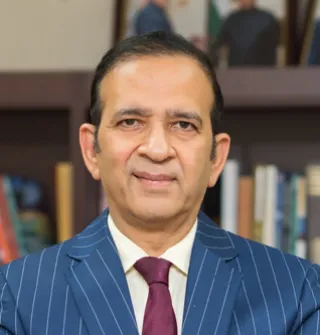After a bruising election campaign fought and won mainly on domestic issues, Prime Minister Modi treaded a turbulent outside world in the first week of his new tenure. Modi’s tryst in Italy with G7 bigwigs was not just an opportunity to hand out the new calling card of Modi 3.0. It was also occasion to discuss global conflicts that are upending the world order. Modi wisely gave a miss to the Swiss-Ukrainian peace conference in the Alps that followed soon after, even though an official Indian delegation registered its presence. Expectedly, the summit’s efforts did not go too far with Russia off the table. But it would be good for India to study these peace moves carefully.
A Challenging World
The planetary turmoil is not new. India has deftly navigated a world where power dynamics have shifted from bipolarity to unipolarity to the current multipolarity of sorts, where India also aspires to be a pole. But the current decade has frontloaded the shocks: a global pandemic; an economic meltdown; wars in Ukraine and Gaza; and the looming threat of another conflict theatre around Taiwan.
To realize its vision of a developed economy by 2047, India must not just adapt to- but also mitigate -the rising geopolitical risks these contests pose to the interconnected global economy. India’s robust growth trajectory—over 8% in 2023-24 and an expected 7% in 2024-25—could be derailed by eruptions of war. Hence, India would need a foreign policy adept at de-risking the global environment and minimizing impacts of global conflicts. This would involve a proactive strategy to deal with external shocks- not just climate change and technological step changes, but also escalating geopolitical tensions that could spiral into catastrophic wars.
Pressure Points
Two major powers- China and Russia- and a middle power, Iran, are challenging the crumbling US-led global order. These geopolitical tussles also pose significant risks to India’s ascent. China is asserting itself against the US in Asia and beyond, while Russia is pushing back against NATO's expansion and reasserting Cold War-era influence. Iran is challenging US interests both directly and through proxies, as it confronts Israel. These contests manifest in various ways: in Europe, where Russia and Ukraine escalate the battle but demand peace, each on their own terms; in West Asia where the loss of civilian lives is propelling all parties to press Israel and Hamas to the negotiating table, but with little more than token acceptance of the UN-endorsed Biden peace plan for the ‘day after’; and in the Indo-Pacific, with China’s unending sabre-rattling around Taiwan.
Himalayan Danger
For India, the most immediate concern is the strategic challenge at its doorstep: a dragon-sized threat from across the high Himalayas, as its troops stand eyeball to eyeball with Chinese soldiers. In this contest, India, as an affected party, can hardly position itself as a neutral peace negotiator. The belligerent rise of China presents a significant, if not existential, challenge to India. To counter this, India must employ its full diplomatic arsenal, forging partnerships and leveraging multilateral frameworks like the QUAD to curb Chinese assertiveness. Chinese behaviour gives India additional reason to engage its primary strategic competitor, the United States, as also its biggest ally Russia.
While India is somewhat removed from the other theatres of conflict, it is still affected through economic pathways: such as energy supplies, global supply chains, and investment corridors. India might now need to transcend its historically effective but cautious neutrality, to contribute more to peace-making efforts, perhaps alongside like-minded nations.
Broken UN System
The United Nations Security Council has traditionally borne the responsibility for global peace-making. But its credibility has waned, given active involvement in current global contests of the P5. Their veto stymies resolutions that directly censure China, Russia, or even Israel. India has sent peacekeepers under the UN flag, but these efforts kick in once a conflict is stabilised, when negotiated peace is to be maintained. Effective peace-making will thus require the involvement of other stakeholders with vested interests in global stability. India, embodying Vishwabandhu, the world’s friend, must step beyond its passive readiness to play a constructive role and adopt a more proactive stance.
It must not remain boxed in a tough South Asian neighbourhood where peace is a scarce commodity. Bringing peace- to the neighbourhood and the wider world- would require building internal capacity and embracing the inescapable challenges of complex geopolitical mediation and the perennial risk of failure.
Time for Indian Peace teams
Today, very few global leaders other than Modi enjoy enough heft and credibility to speak in the same morning with the leaders of Israel and Palestine, Ukraine and Russia, US and France. But the country has limited experience and capacity in peace building. The Ministry of External Affairs and the think tank community need to create capacity- with peace-making teams involving diplomats, civil society experts, and activists dedicated to studying conflict, who can learn from global peace-making experiences and craft conflict resolution strategies. Global case studies abound.
Norway, for example, has a small but effective peace unit with about a dozen people, that boasts a track record that made Oslo a synonym for peace. India need not lead a peace march alone. It can collaborate with like-minded middle powers (like South Africa, Brazil Indonesia) and traditional Western peacemakers (Switzerland, Norway, US.) It is time for India to unleash some proactive peace diplomacy and take calculated risks for global peace.
This commentary originally appeared in The Times of India.
The views expressed above belong to the author(s). ORF research and analyses now available on Telegram! Click here to access our curated content — blogs, longforms and interviews.




 PREV
PREV

.png)
.png)